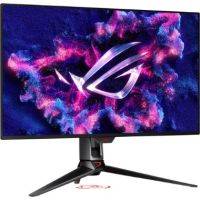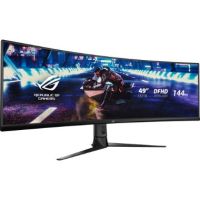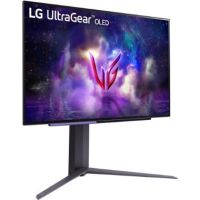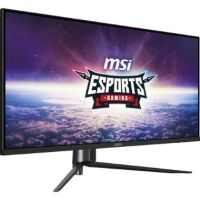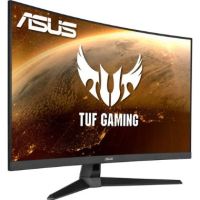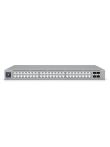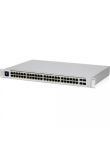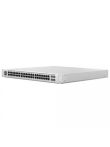Gaming Monitor
- ASUS Republic of Gamers Swift 31.5" OLED 4K HDR 240 Hz ...
 In Stock
In StockBrand: ASUS SKU: PG32UCDM Condition: NEW USD 1262.24 - ASUS Republic of Gamers Strix XG49VQ 49" 32:9 Ultra-Wid...
 In Stock
In StockBrand: ASUS SKU: XG49VQ Condition: NEW USD 828.22 - MSI MAG 321UPX QD-OLED 32" Class 4K UHD Gaming OLED Mon...
 In Stock
In StockBrand: MSI SKU: MAG321UPXQDOLED Condition: NEW USD 811.92 - LG UltraGear OLED 27GS95QE-B 26.5" 1440p HDR 240 Hz Gam...
 In Stock
In StockBrand: LG SKU: 27GS95QE-B Condition: NEW USD 744.07 - MSI MAG 341CQP 34" 1440p 175 Hz Curved QD-OLED Ultrawid...
 In Stock
In StockBrand: MSI SKU: MAG341CQPQDOLED Condition: NEW USD 626.91 - MSI MAG401QR 40" 1440 155 Hz Ultrawide Gaming Monitor
 In Stock
In StockBrand: MSI SKU: MAG401QR Condition: NEW USD 393.57 - LG 27GR75QB-B UltraGear 27" 1440p 165 Hz Gaming Monitor
 In Stock
In StockBrand: LG SKU: 27GR75QB-B Condition: NEW USD 355.66 - ASUS TUF Gaming VG32VQ1B 31.5" 16:9 Curved 165 Hz FreeS...
 In Stock
In StockBrand: ASUS SKU: VG32VQ1B Condition: NEW USD 290.85
What to Look for in Gaming Monitors
Gaming monitors have become the preferred choice for gaming as they offer many technical specs and capabilities tailored for gaming. Therefore, gaming enthusiasts are always in need of the best monitor that can enhance their gaming experience. In any PC, no matter how high-end PC parts you have including the best available graphics card and the fastest possible CPU, if you don’t install a solid gaming monitor, your PC cannot demonstrate its full glory.
But the issue is when you enter the market, you find monitors with varying specs such as response time, 1080p, 4K, HDR, and ultra-wide, to name a few, this makes it very hard for users to choose the best monitor solution customized to their unique gaming needs and preferences. Concerning this, we have curated this write-up to help you find the best gaming monitor. Furthermore, you can also visit our gaming Monitors and PC collection, featuring a 4K gaming monitor, curved gaming monitor, 144Hz gaming monitor, and more.
Let’s get the ball rolling!
How to Choose the Best Gaming Monitor for Your Unique Gaming Needs:
Here are some specs that you should look into.
-
Resolution:
Needless to say, a resolution should be the first thing you should consider before making an ultimate choice. Higher resolution allows gamers to enjoy crisper visuals and intricate details. You should also look for High Dynamic Range or HDR that helps you enjoy enhanced color accuracy and contrast.
Normally, you find 1080p monitors, 1440p monitors, 2K monitors, 4K monitors, and even some 8K monitors in the market. But you should understand that a compatible graphics card is key to unlocking the truest potential of resolution. For instance, there is no need to buy a 4K monitor, if your GPU does not support 4K resolution, otherwise, it would be a total wastage of resources.
Because of the above-mentioned point, here are recommendations to get the most out of the resolution.
- 1080p monitor is the standard monitor available in the market. These are affordable and you can find them everywhere easily. Graphics cards that are suitable for 1080p resolution are NVIDIA GeForce GTX 1650 Super, GeForce GTX 1660 Super, and AMD Radeon RX 5500 XT.
- 1440p monitors are a great choice if you want to upgrade from 1080p and cannot afford 2K monitors. GeForce RTX 3070 and Radeon RX 6800 are two highly recommended GPUs for this resolution.
- 4K monitors offer the incredible 3860×2160 pixeled resolution. This is the most coveted resolution that every gamer aspires to, but it is the most expensive as well. When it is paired with HDR, you end up having incredible image quality. GeForce RTX 3080 or AMD’s Radeon RX 6800XT are two graphics cards that help you get the most from 4K resolution.
-
Refresh Rate and Response Time:
Refresh rate and response time are also major considerations. Refresh Rate is measured in Hertz or Hz and it is synonymous with Frames Per Second or FPS. This indicates how many times a monitor can refresh the screen a second. Normally, the higher the refresh rate, the better.
Response time is a measurement of how much time a monitor takes to switch from one mode to another. It is measured in milliseconds, and the lower the response time, the better.
As a recommendation, monitors with a 144Hz refresh rate are suitable for most competitive games. However, games with immense performance profiles and high details can be played better on 60 FPS monitors. 5ms or below response time is recommended for enjoying an immersive gaming experience, however, 1ms response time is the best for high-end gaming.
-
Adaptive Sync:
Adaptive Sync is another major feature that you should look into. This technology helps synchronize graphics cards and displays, reducing chances of screen tearing and stutter, and allowing you to enjoy buttery-smooth gaming.
Adaptive sync is available in two types: NVIDIA G-Sync and AMD’s royalty-free FreeSync. FreeSync of AMD is cheaper compared to G-Sync, and even NVIDIA has started to offer compatibility with FreeSync. Having said that, if you want to get the most out of NVIDIA GPUs, go for G-Sync to improve the visual experience. And in this regard, ASUS offers one of the best Adaptive Sync Gaming Monitors, which ASUS 27" TUF Gaming 1440p 180 Hz Monitor - VG27AQ3A, featuring a WQHD IPS display for crisp visuals, ultra-smooth 180 Hz refresh rate, 1 ms response time, and Adaptive-Sync/FreeSync Premium for tear-free gameplay, perfect for competitive and immersive gaming.
-
Screen Size & Aspect Ratio:
Screen size is also a major consideration when it comes to buying a best-suited gaming monitor. Similar to resolution and other features, monitors come with varying sizes and aspect ratios. As a recommendation, you are advised to go for either a 27” display or a 32” display. Most of the competitive games are designed for a 27-inch display, allowing users to view and perform all actions within a narrow screen.
Display size of over 32-inch monitor is suitable for a more cinematic experience, suitable for single-player games. It is because a larger screen means your eyes keep on darting around the screen, increasing the chances that you may miss an event in the games.
The aspect ratio can be standard 16:9, 21:9, and even 32:9. 16:9 is the most popular aspect ratio and most of the games and consoles support this aspect ratio. It places all information in front of you and it is similar to TV.
21:9 aspect ratio is for a more engrossing and immersive gaming experience. It helps you enjoy a deeply-immersive experience, freeing up the center of the screen, and allowing gamers to place HUDs (heads-up displays) and information.
What’s more, the 32:9 aspect ratio is massive which is found only in giant displays such as the Odyssey OLED G9. But it has serious drawbacks, and some gamers don’t support this aspect ratio, which leads to black bars on the side of the screen.
-
Panel Type and Color Gamut:
Out of several technical specs, panel type stands out because the nature of the panel can influence your experience significantly. When it comes to gaming, there are largely two panels:
- TN (Twisted Nematic)
- IPS (In-Plane Switching)
As a whole, both panel types are suitable for gaming. It is largely your preference that should determine the ultimate selection. TN monitors normally have less response time, which leads to the resolution of ghosting issues to a large extent. But the downside of Twisted Nematic panels is that they have limited viewing angles, making it harder for you to look at details on screen when the display is tilted a bit especially on darkly-lit screens.
On the other hand, IPS Panels have no broader viewing angle but suffer from comparatively higher response time than TN panels. Though some IPS panels support a 1ms response time, they are expensive and cost you a lot.
Gaming Monitor Buying Guide:
Here are our specific recommendations to help you find the best value for your money.
Best 4K Gaming Monitor:
Asus ROG Swift PG32UCDP is ranked as the best 4K gaming monitor. Supporting up to 240Hz refresh rate, this OLED monitor is a high-performing monitor for both gaming and productivity tasks.
Best Monitor for XBOX Series X:
LG 27GS95QE-B is considered one the best monitor solutions for XBOX Series X. This 27-inch OLED gaming monitor can support up to 240Hz refresh rate and 2560 x 1440 native resolution, making it a perfect solution for gaming.
Best Ultra-Wide Gaming Monitor:
Samsung Odyssey Neo G9 G95NC is a top-ranking gaming monitor. It is capable of supporting up to 240Hz refresh rate and dual 4K resolution. It is a mini-LED monitor that comes with exceptional pixel density and an immersive gaming experience.
Best Budget Curved Gaming Monitor:
Dell S3422DWG is recommended as one of the best available curved gaming monitors. It is provided with a 34-inch display size, 144Hz refresh rate, 3440 x 1440 resolution, and 1800R curved radius.



